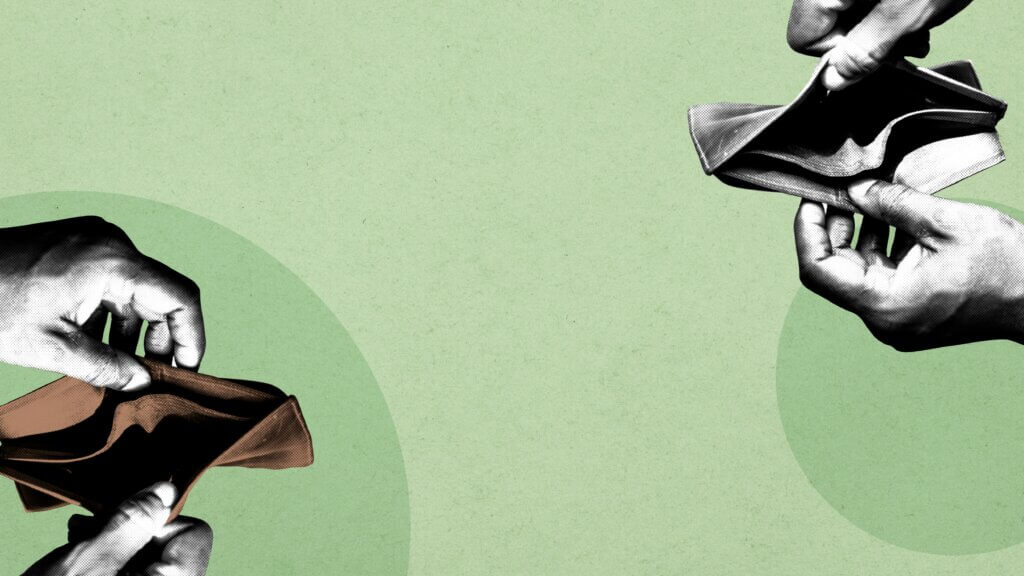According to several articles recently published by The Athletic almost all football clubs go with the same ‘bonus’ logic – with the main exception of Manchester United.
Which child will be happier?
Full disclosure: whilst the three authors of this article are all avid football fans*, none of us is a parent. Being an uncle is not foreign to us though and a little thought experiment involving children playing with their favourite toys is quite insightful when talking about bonus contracts for footballers (or bonus contracts in companies altogether). After all, the key forces at work in the children’s behaviour in our example are what economists and behavioural scientists found in adults too.
To learn what these scientists may think about Manchester United’s way to incentivise their players, let’s start with hypothetical parenting situation A: Imagine you have two daughters (or nieces) in two separate rooms each playing with their favourite toys. Child A.1 starts playing with one toy and you enter the room giving her one more, i.e. Child A.1 ends up with two toys. Child A.2 starts playing with three toys. Here you also enter the room, but take away one of the toys, i.e. Child A.2 also ends up with two toys.
What would you prefer to do if it was your child? Which child do you think will be happier?
The answer seems obvious: if you end up with a child playing with two toys, you would be mad to go the Child A.2 route, start with three and take one toy away, as with this child most likely all hell will break loose. (Behavioural) scientists call the main factor at play here an ‘endowment effect’. In essence, owning something increases the value one attaches to it beyond the inherent value the item has. Two of the leading researchers in behavioural sciences, Daniel Kahnemann and Richard Thaler, conducted a famous experiment where in one treatment they let people buy simple, cheap pens they did not own and in the other treatment sell identical pens that had been gifted to them moments before. The resulting average prices for the latter were significantly higher, which can be explained by the value one attaches to something once they already have it or own it.

Owning something increases the value one attaches to it beyond the inherent value the item has
Now to make things a bit more complicated imagine parenting situation B: you want to let your child play with her toys, but also incentivise her to tidy up her room. You have three toys and see two alternatives: you can either let your child play with two toys and tell her that she will get a third one if she cleans up her room, let’s call this B.1 or the ‘bonus’ treatment. Alternatively, you can give the child three toys and say you would take away one of the toys after half the play time if she does not tidy up her room (B.2 or the ‘malus/penalty’ treatment).
So, what would you opt for there? Still a clear answer?
The interesting bit is that this answer is not straightforward from an economist’s and behavioural scientist’s point of view, but allegedly every football club bar one has a clear answer – and 99% of businesses we know have the same answer as well, including our own company!
The vast majority of businesses tend to go route B.1 and incentivise their work force with a combination of a fixed base pay (e.g. 100) and a bonus (e.g. 25%) linked to revenue, profit, sales and/or individual targets at the end of the year, rather than starting from a higher base pay of 125 assuming targets will be met and then cut it by something like a penalty of 25 to a new base wage of 100 or even retrospectively (method B.2).
According to several articles recently published by The Athletic almost all football clubs go with the same ‘bonus’ logic – with the main exception of Manchester United.
Financial incentives as motivators
Professional footballers’ contracts are of course most notable for their sizable weekly/yearly pay packets, but they invariably also contain financial incentives encouraging a player to perform her or his best. The ubiquity of these arrangements suggests that the professional sportsperson’s lauded competitive spirit only goes so far, and that for some players at least, cash incentives can make a real impact on their motivation and effectiveness. Some of these incentives are linked to individual accomplishments (think of a striker receiving a bonus for each goal scored), but the majority relate to the performance of the whole team. The most significant portion of this will correspond to the team’s primary objective for the year – whether that is winning the league, qualifying for the Champions League, or avoiding relegation. In all cases, a squad which achieves its primary objective will receive more pay, i.e., a bonus as in B.1, than if they fail to achieve this.
As mentioned, this does not seem to be the case for Manchester United. According to The Athletic, the team’s failure to qualify for next year’s Champions League has not resulted in players ending the season on their regular wage without a bonus added, but rather with a 25% reduction of their normal pay moving forward. So, what is the story here? Are United ahead of the curve, pursuing a strategy which will be mimicked by their rivals in the years to come? Or is this something pundits might ponder over as a questionable decision from the Old Trafford boardroom?
Manchester United and loss aversion
To answer this, we must add another established behavioural concept on top of the endowment effect: loss aversion.
Loss aversion is the idea that as humans we overvalue losses when compared to gains. As a stylised example, finding a £10 note on the ground should improve your mood by the same amount as dropping one decreases it. However, behavioural scientists have consistently found humans to have a cognitive bias meaning the loss looms larger in our minds than the corresponding gain. This provides a rationale for Manchester United’s incentive scheme – the thinking here could be that players will be more incentivised to avoid a 25% drop in their salary than they would be to achieve the equivalent gain. Not wanting to lose something makes them work harder than gaining the same thing.

We overvalue losses when compared to gains
However, and as illustrated earlier with children and their toy cars, the endowment effect is also a real phenomenon, and means that people overvalue what is in their possession already compared to things which do not belong to them. In the case of Manchester United, the Red Devils players came into the season on a set salary which each player could consider belonging to them. The endowment effect would therefore suggest that each player will put a premium on their existing salary level. A 25% drop in salary will feel far more impactful to them than the financial hit alone should suggest!
What does that mean for businesses?
So what does it tell us that the majority of football clubs and companies goes for the bonus?
Simply put that most decision makers agree with the three of us as well: the endowment effect seems much more significant in the wage environment than loss aversion which clearly speaks for going with the Bonus route. We do not want to compare professional football players to the children in our earlier thought experiment too much – but sulking at the prospect of having a significant part of their salary taken away seems like a giant threat for team morale which is an important yet intangible aspect of team sports, and this negative incentive scheme can only be damaging in this regard as well. We wish Manchester United luck in dealing with the fallout of this season’s salary cuts, especially if the rumours are true that some star players managed to negotiate exemptions, yet lower-paid players were not! For the rest of the business world paying much more moderate wages altogether, other practical implications also speak against the wage cut route (retrospective ones). Not knowing how much money can be spend as a minimum during a year is not something everyone can afford, and it hence is no surprise that bonus wage contracts are more ubiquitous.
And there are even more incentive systems in football
For the sake of completeness, and since we’re only just scratching the surface of incentive contracts in football in this blog, there are a rich variety of other interesting incentive schemes used by clubs across Europe, as The Athletic’s reporting shows. More examples of unorthodox schemes are said to belong to Sheffield United (who pay their players a bonus per win, but only if they finish in the top 6 of the league), Birmingham City (who also pay a bonus per win, but with this bonus being greater for the first 10 matches of the season), and Premier League winners Manchester City (who have exited the Champions League in the semi-finals, again, despite completely backing away from individual bonuses in favour of incentivising collective success, i.e. winning the Champions League trophy). Whatever system is used, it’s imperative that great thought is given into its design in order to avoid nasty unintended consequences and emotionally losing the locker room.
*And at least two of us had our fair share of Manchester United related schadenfreude for one season.
References:
Kahnemann, D. Knetsch, J.L., Thaler, R.H. Experimental Tests of the Endowment Effect and the Coase Theorem. The Journal of Political Economy, Vol. 98, No. 6. (Dec., 1990), pp. 1325-1348.
